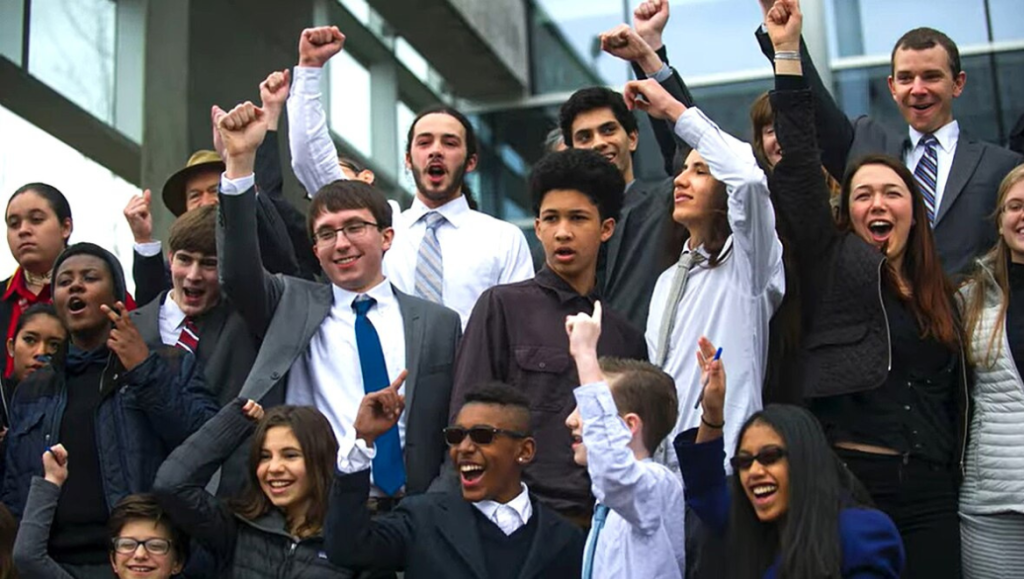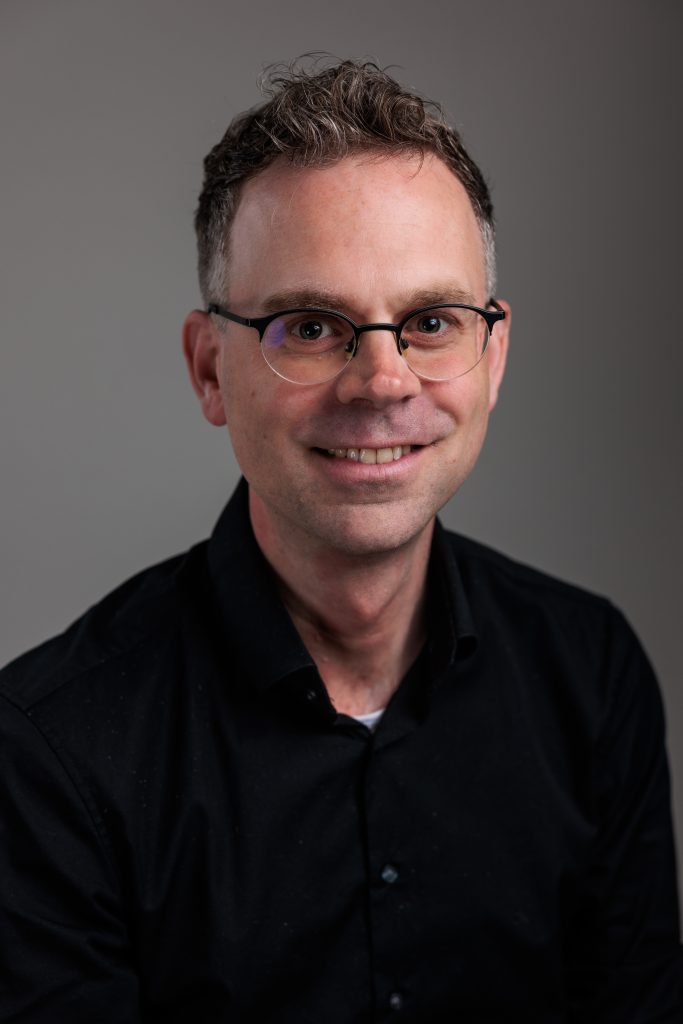The Power of Rhetoric in the Courtroom

Description: Our Children’s Trust, plaintiffs in the case Juliana vs United States. Author: Our Children’s Trust #youthvgov
At the University of Groningen and as a member of the CLADES project, Jelte Olthof is exploring how young climate activists use language to drive legal change. Supported by funding from the Dutch Research Council (NWO), his research focuses on the rhetorical strategies of youth who take their governments to court over climate inaction. His work is offering new insights into the future of climate litigation.
In 2019, several days before the United Nation Climate Action Summit in New York, an estimated six million youth across 150 countries worldwide took to the streets for a climate school strike to protest the failure of the international community to adequately address climate change. In addition, since the Paris Agreement of 2015 at least 50 youth-led groups have sued their governments to demand a more robust climate policy to safeguard a habitable future climate.
These voices inspired Jelte Olthof to study youth climate rhetoric in general, and the rhetoric of young plaintiffs who sue their governments in particular. Jelte works as senior lecturer with the American Studies department at the Faculty of Law and received funds from the Dutch Organization of Scientific Research (NWO) to map out the rhetorical strategies employed by these youth and their potential for future climate litigation.
Understanding the language of youth climate activism
His project, Youth Climate Court Rhetoric (YoCCR), explores how future generations will be given a voice in present-day climate decision-making that determines the habitability of our planet. It starts from the assumption that scholars have, so far, failed to find institutional remedies to the short-term bias inherent to representative democracy. In the meantime, young people across the globe have taken to court to secure a right to a healthy living environment.
“The project will study the rhetoric of these young climate activists. It will analyse how they successfully use their role as the voice of future generations by projecting the future into the present. This often helps them overcome procedural obstacles known as ‘standing’ and challenge the short-sightedness of democratic policy-making”, he says.
The projected outputs of the project include a database of all identified youth-led climate cases globally, as well as a publication analysing this corpus using an interdisciplinary approach that combined legal, social movement, and rhetorical theory.
The project will culminate in an Expert Meeting scheduled for March 2026 that brings together scholars and practitioners from across the globe to share the most recent insights and developments as well as strategize about future collaborations.
The “Voices of the Future” project
In May, Jelte received funding for a PhD-position in the Ubbo Emmius Fund M20 Scholarship competition. Together with Law Professor Hans Vedder, Jelte will supervise the project “Voices of the Future: Reconstructing Youth Rhetoric in Climate Change Case Law.” The PhD-candidate in this project will be Phoebe Muir, who currently serves as research assistant in the NWO-project.
The “Voices of the Future” project examines the role of rhetoric in youth climate litigation by taking an interdisciplinary approach that combines legal, rhetorical, and social movement studies, theories and methods. It will study the national and international legal frameworks for such litigation, the rhetoric used, and the legal and public reception of this rhetoric.

“This will help us uncover how youth rhetoric influences broader societal adaptation to climate change. The main aims to answer the question of whether youth, as one of the groups most affected by climate change, should have a special position in climate litigation”, he explain.
The PhD student Phoebe Muir will use global youth climate litigation to construct archetypical cases that we will then test for their reception among Groningen youth. She will also examine what rhetoric resonates with local youth, and what the legal implication of this reception can and should be.
By means of the M20 scholarship, the team will be able to create sustainable academic attention for the intersection of law, rhetoric, and youth climate litigation at the University of Groningen.

